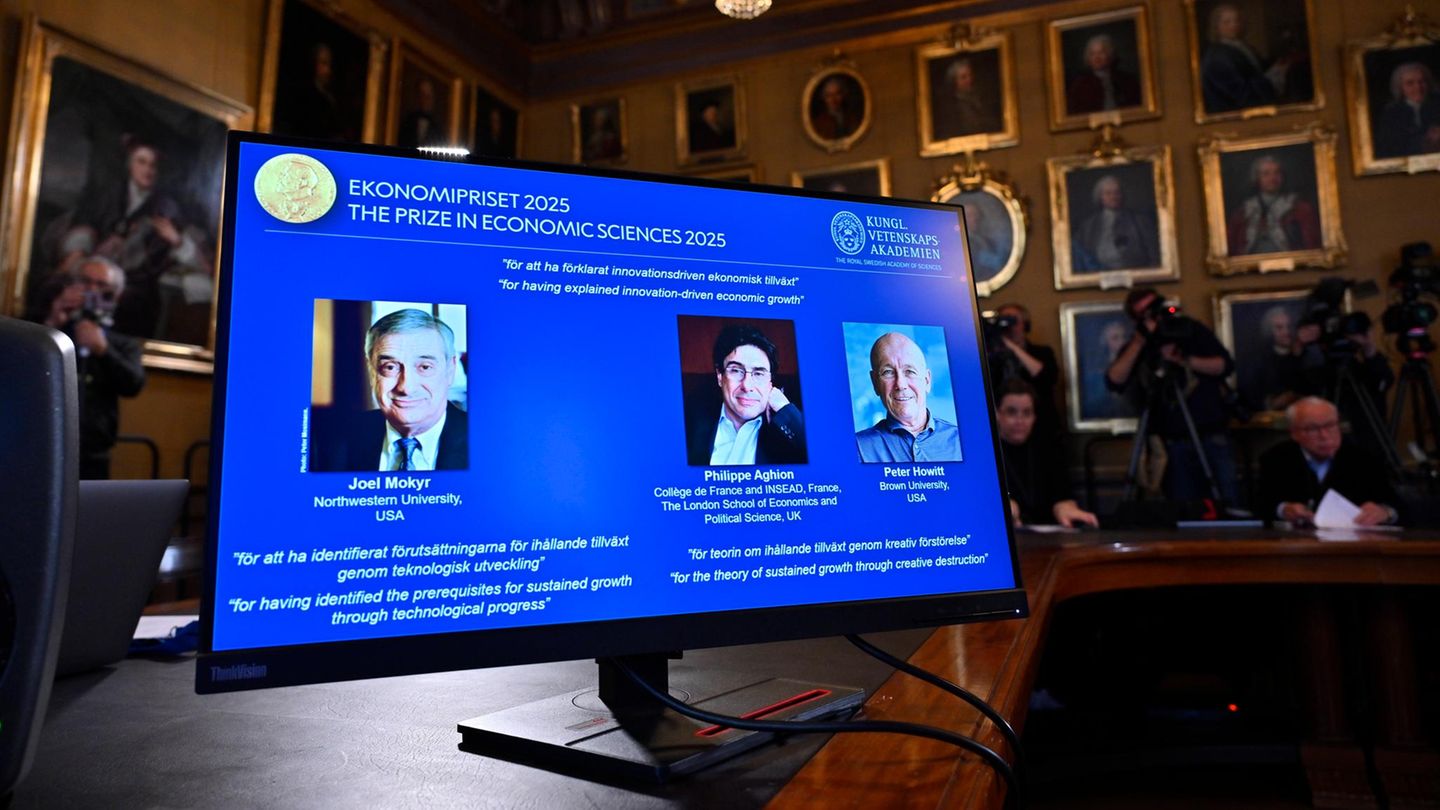Stockholm
Nobel Prize in Economics for research into sustainable growth
Copy the current link
Add to wishlist
This will be the sixth and final time for this year Nobel Prize winner exclaimed. The Nobel Prize in Economics goes to a US-Israeli, a Frenchman and a Canadian.
The Nobel Prize in economics this year goes to three men: the US-Israeli Joel Mokyr, the French Philippe Aghion and the Canadian Peter Howitt. They receive the award for their research into the effects of technological progress on sustainable economic growth, as the Royal Academy of Sciences announced on Monday in Stockholm.
This year’s prize is about creation and destruction, said the Secretary General of the Royal Swedish Academy of Sciences, Hans Ellegren, at the prize announcement on the grounds of Stockholm University SU. The three award winners managed to explain innovation-driven economic growth, he said.
According to the information, the 79-year-old Mokyr has made outstanding contributions to his work on “identifying the prerequisites for sustainable growth through technological progress”. The professor at Northwestern University in the US “used historical sources as a means to uncover the reasons why sustained growth became the new normal,” said the jury.
The 69-year-old Aghion and the 79-year-old Howitt discussed the concept of “creative destruction,” which describes how companies can suffer when a new and better product comes onto the market. According to John Hassler, chair of the Economics Prize Committee, the broader work is about answering the question of how technological innovation can drive growth and sustain sustainable growth.
The Dutch-born economic historian Mokyr, who holds Israeli and American citizenship, will receive half of the prize. The Frenchman Aghion, who teaches in both France and Great Britain, shares the other half with the Canadian Howitt from the American Brown University.
In contrast to the other prizes, the Nobel Prize in Economics does not go back directly to the will of the prize founder, Alfred Nobel. It was established in 1968 by the Swedish Riksbank in memory of Alfred Nobel and has been awarded since 1969.
Last year, the research trio Daron Acemoglu, Simon Johnson and James A. Robinson were honored. They were honored for their contributions to the question of how social institutions affect a nation’s prosperity.
To date, the only German prize winner in the category has been the Bonn scientist Reinhard Selten (1930-2016). In 1994, he was awarded the prize together with John Nash and John Harsanyi for their pioneering contributions to non-cooperative game theory Nobel Prize been awarded.
Last category of the Nobel Prizes
This year’s Nobel Prize series ends with the economic award. The Nobel Prize winners in the categories of medicine, physics, chemistry, literature and peace were announced last week. All Nobel Prizes are traditionally presented on December 10th, the anniversary of the death of the Swedish dynamite inventor and prize donor Alfred Nobel (1833-1896).
This year, the Nobel Prizes are once again endowed with prize money of eleven million Swedish crowns (around one million euros) per prize category. If there are multiple winners in a category, they share this sum.
Note: This article has been updated several times to include additional information.
AFP · DPA
rw
Source: Stern




